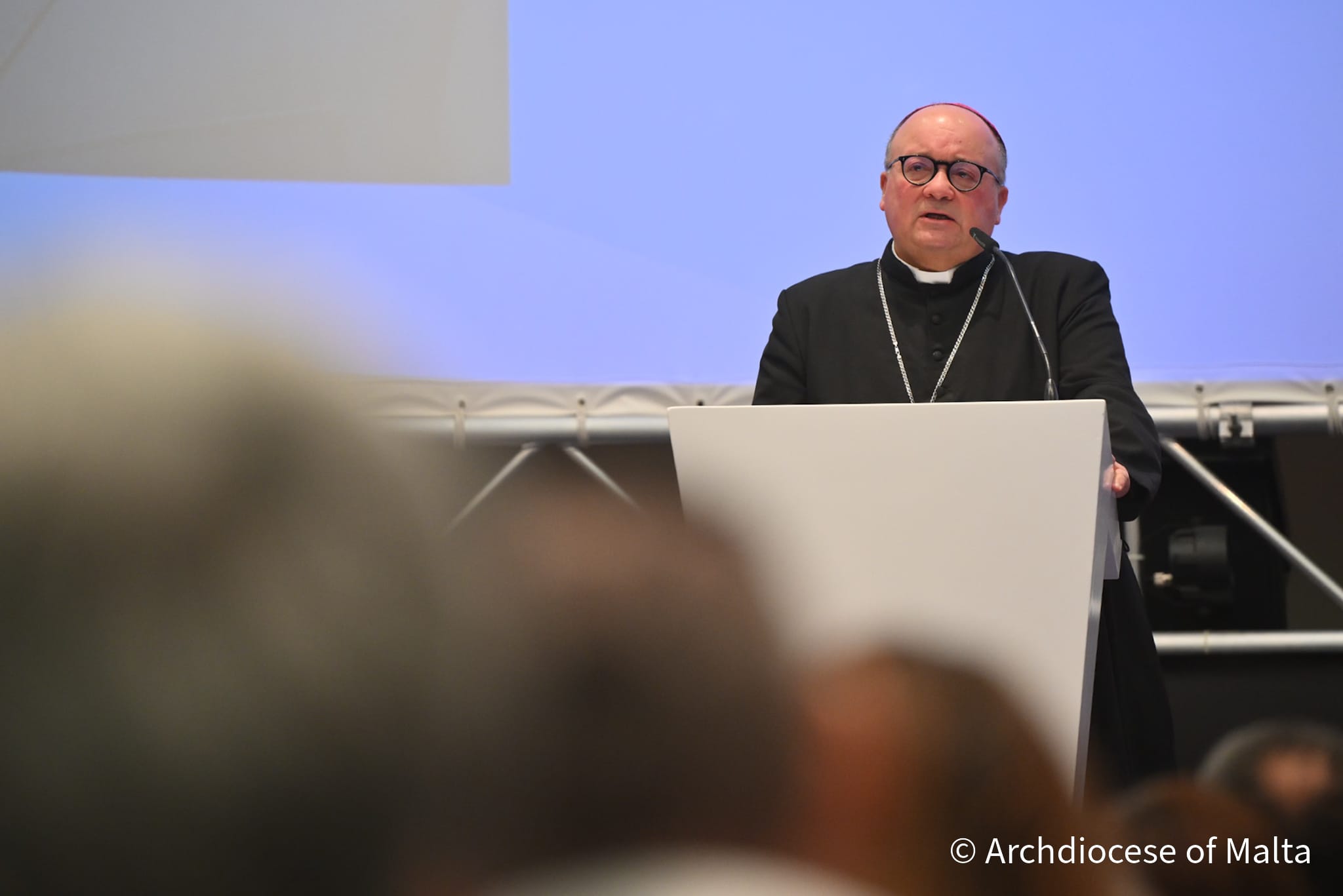Message by Archbishop Charles Jude Scicluna
First of all, thank you for being here because we are going to discuss today an important topic, a shared mission and I would like to encourage each and every one of us to adopt this attitude to safeguarding and protection of the vulnerable in the Church.
I remember a phrase in the movie Spotlight that gave the narrative of the debacle and the egregious situation in Boston at the turn of the millennium which said, “It takes a village to educate a child.” It also takes a village to protect a child.
So, as we approach this important and vital subject, the safeguarding, the protection of our young, of our youth, of our vulnerable members, of each and every one of us, we need to understand that this is truly a shared mission. It is the responsibility of each and every one of us.
I have had the privilege to work closely with Pope Benedict XVI and Pope Francis on this issue, and I was called to the CDF at that time in 2002 as Promoter of Justice and responsible for dealing with all the sexual abuse cases starting from 2002 by St John Paul II. On the 23rd of April 2002, he asked the members of the College of Cardinals who hailed from the United States to a special meeting, and he had this phrase that has become an important milestone in our ethos: “There is no place in the Church and in the priesthood and in religious life for anybody who would abuse the young.”

Now, what does it mean to say that there is no place, that there is no place in authority, we should not allow people to abuse of their role, of their authority. There is always a place for sinners in the Church, there is always an opportunity to start again, but never to continue in an abusive approach to authority.
Another aspect I would like to share is a special mission we have as a country. I often reflect on the etymology of ‘Malta’ or ‘malat’. There are two theories. One of them says that ‘malat’ from the Phoenician is the root of the name of our islands and ‘malat’ in Phoenician means a safe haven. Our ports were well known in the Mediterranean as safe havens; they were natural harbours that gave protection, especially in the winter months. Even St Paul, who was shipwrecked here, stayed the winter, as the Acts of the Apostles say. We are a safe haven. Are we a safe haven? If we want to be a safe haven as a society, as a Church, protection of the young and the vulnerable has to be a priority. And so, as we engage in our discussions, in our reflections today, let us live up to our calling, which is actually part of our heritage, that we may always become a safe haven.
My last point is, why is it important for us as a Church to engage directly with this issue? First of all, it is because we need to confront ourselves with the very sad reality that abuse happens also within our ranks and in our environments. This needs a lot of humility, but also the courage to confront ourselves with the truth. But the more important aspect is that abuse in our environments, which are spiritual, not only social, has an egregious character which probably other abuse situations do not share. We are talking about the scandal of the little ones. Jesus talks about this because abuse in Church environments always has a spiritual element. It not only harms the physique, the psyche of a person, but it is also an assault on their faith journey. There is always a spiritual abuse when the abuse happens in our environments and this makes what happens within our ranks very, very grievous.
I remember a situation when I was in Chile in 2018. On the first of the two visits, I remember a situation where one of the witnesses was talking about his abuse, his experience of abuse, and he stopped and looked at me and he told me, “Where was God when I was being abused?” And I stopped and I said, “He was there with you, crying with you.” But I realised also that I was approaching a person who had not only been hurt in their dignity, in their physical integrity, in their psyche but also in their faith, and that is why our shared mission should be a mission of truth and humility, and a mission of healing, together, something that Pope Francis insisted, especially in his letter to the people of God from 2018: When one of our members suffers, we all suffer. When we are safe, we are truly Church.
✠ Charles Jude Scicluna
Archbishop of Malta





